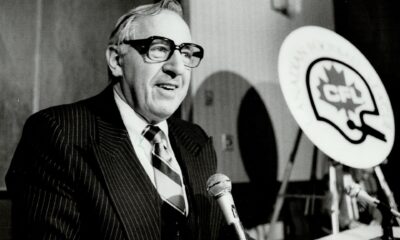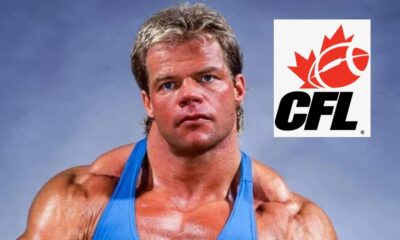In the era of maximum contracts, 10-year deals, and massive salary caps, the Canadian Football League has long held a pool of talent in its niche while spending modestly. To put things in perspective, the CFL pays better than the XFL, AAF, TSL, or any Arena Leagues, but far less on average than the NFL. Let’s look at the numbers, and as a point of reference the exchange rate of Canadian Dollars to US Dollars is $1 CAN = $0.83 USD.
Per the NFL’s new collective bargaining agreement, the lowest salary in 2021 will be $660,000 USD, while practice squad players can earn up to $140,000 USD, at ~$8,000 USD per week. On the other end of the spectrum there, is the half-a-billion-dollar-man Patrick Mahomes, with his 10 year, $500 Million USD Contract. Suffice to say there’s a range.
The XFL paid most of its players a boilerplate contract which averaged around $55,000 USD, $27,000 of that being guaranteed for the 10-week season, with active roster bonuses being paid out every week. Some marquee players (mainly quarterbacks) were paid six figure salaries, but these were in the minority. The AAF had standard $70,000 USD contracts before its collapse, while Arena leagues often pay a few hundred dollars per game.
The CFL lies somewhere in the middle here, as the average salary ranges from the minimum of around $60,000 CAD to $80,000 CAD. Players were just asked to take a 20% pay cut for the 2021 season amid the CFL’s financial struggles, but the bottom line is that the pay for Canadian Football is as good as players are likely to find outside of the NFL.
Star players will of course make more money, as evidenced by Lions QB Mike Reilly’s 4-year, $2.9 Million CAD deal. The $725,000 CAD average he’ll be taking him home is comparable with the lower end of NFL money, but Canadian teams are more likely to be cautious with big contracts like this, as they are projected a $5,350,000 CAD salary cap in 2021, and can’t afford to hand out million dollar contracts.
The key differences to remember are playing opportunity, and niche. The CFL is its own game, and has always prided itself on picking up talent that slipped past the NFL’s gaze, so the opportunity to play and compete has always been a huge appeal to players. While leagues like the USFL in the 1980s tried to pry talent away from the NFL with huge contracts, this has never been the CFL’s strategy, and up to this point have been able to keep their teams stocked with homegrown and international talent without breaking the budget.
Full coverage of the 2022 season on CFL News Hub.























David Tress
June 12, 2021 at 12:09 pm
Warren Moon, Rocket Ismail and Doug Flutie earned more than that in the CFL. There should be room for marquee players in the CFL to drive up attendance and lure bigger tv contracts in the CFL for the future.
Cleetus Farragamo
September 11, 2021 at 7:49 pm
And it’s always worked well.I bleed Maple Syrup and if it came right down to it i’d rather see the league pack it in instead of trying to merge with some third rate US outfit.Wouldn’t be long before it was the CFL in name only and the only Canadian on the team would be the Waterboy!!!
Cleetus Farragamo
September 11, 2021 at 7:51 pm
Wonder how many fans know that the Ti-Cats upset the Buffalo Bills in 1960?
Terry
February 11, 2023 at 9:46 am
The 60’s were the golden yesrs for the TiCats. Outstanding defense.
David Tress
February 13, 2023 at 2:06 pm
The average CFL salary should be more than the NFL practice roster salary, and the top performers in the CFL should earn the NFL minimum at least. That way we won’t lose so many top performers in the CFL. The salary cap should be adjusted to allow for such.
Michael Muldoon
February 18, 2023 at 8:39 am
Are teams that are already losing money every season (at least six of the nine CFL clubs in 2022) going to increase the salary cap and add more read ink? No, they’re not. Larry Tanenbaum and MLSE, with the richest sports organization in Canada that makes hand over fist on the Toronto Maple Leafs, Raptors, and TFC, will never commit to losing more on his CFL team even though the Argonauts roster makes less in total than the top-paid player on his hockey team makes by himself.
It doesn’t matter how much fans want to see a salary cap increase. Until overall league revenues rise to a point where they exceed overall league losses by a wide margin, the salary cap is going to remain low. You can complain about that all you want and keep repeating your mantra, “Higher salary cap, higher salary cap, higher salary cap,” but that’s the reality of the situation.